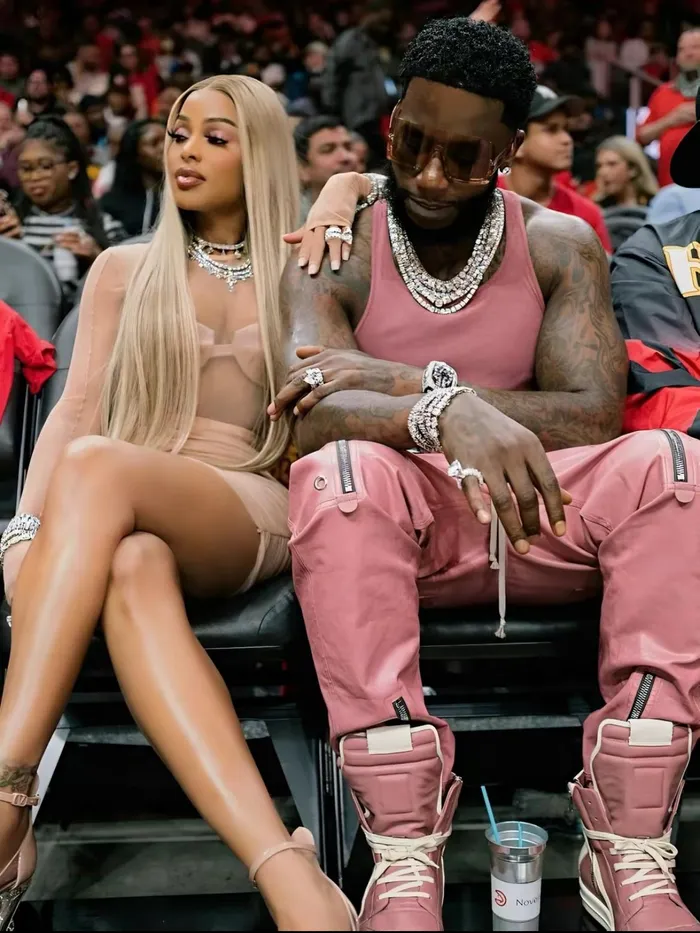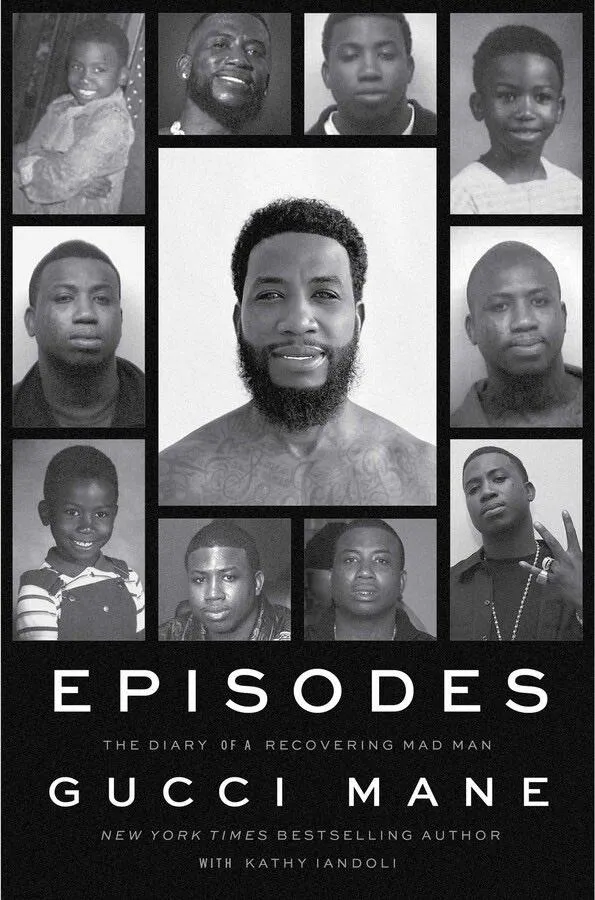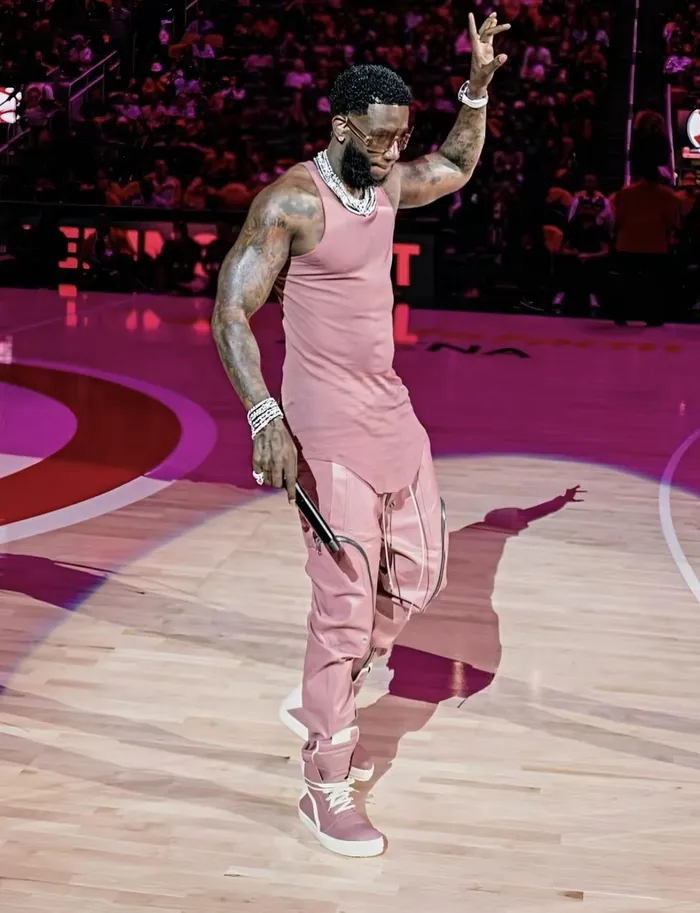Gucci Mane's 'Episodes': a raw look at mental health in hip hop culture

Gucci’s wife, Keyshia Ka’oir, detailed her insights into managing her husband’s mental health
Image: X
When rap legend Gucci Mane (real name Radric Delantic Davis) burst onto the scene nearly 15 years ago, his music soundtracked the hustle, the highs, and the heartbreak of the streets.
Songs like “Wasted” and “Pillz” weren’t just party anthems; they were cultural timestamps in hip-hop’s era of glorified excess. But behind the fame and flamboyance, there was a man quietly battling demons he didn’t yet have the words for.
This month, with the release of his memoir "Episodes", the Atlanta rapper is telling the story few expected: one about schizophrenia, addiction, and redemption told not through a beat, but through brutal honesty.
In a powerful "Breakfast Club" interview promoting the book, Mane’s wife, entrepreneur Keyshia Ka’oir, revealed how she’s learned to recognise and manage her husband’s mental health episodes.
“I have a system,” she said.
“First thing I do is delete Instagram. I delete everything. Even if I gotta change his password, I’m changing it because I don’t need the public to know he’s having an episode.”
Her candour revealed what many caregivers, especially black women, often shoulder quietly: the emotional labour of protecting their partners from both their illness and the judgmental gaze of the world.

Gucci Mane's new memoir Episodes tackles the rapper's struggles with schizophrenia and addiction, revealing the often unseen emotional labour of caregivers like his wife, Keyshia Ka’oir
Image: X
“He doesn’t eat. He doesn’t sleep,” she continued, describing early signs of relapse.
It’s an unspoken reality, one that mirrors the way Kim Kardashian once spoke about life with Kanye West, who has also battled public manic episodes.
Both women, in very different cultural spaces, became caretakers of men that the world watched unravel in real time.
But where Kardashian’s journey played out under the lens of tabloid sympathy and public speculation, Ka’oir’s story cuts deeper into the complexities of being a black woman caring for a black man whose pain the world too often misreads as aggression or chaos.
Hip hop’s evolving mental health conversation
For decades, hip hop has been both an escape and an exposure therapy for black men’s pain. Yet vulnerability hasn’t always been welcomed in a culture built on survival.
Artists like Kid Cudi, Kendrick Lamar and Logic have begun to shift that narrative, but Mane’s openness about schizophrenia and bipolar disorder adds a rarely explored layer to the conversation.
In an interview with "Forbes", Mane explained his motivation for speaking out: “I was trying to use my story, my addiction, and mental health to help somebody else.”
According to the American Psychological Association (APA), black men are less likely to seek professional help for mental health conditions than any other demographic group in the US. Systemic racism, financial barriers, and cultural stigma often mean they either self-medicate or suppress symptoms until a crisis hits.
Mane’s early years marked by erratic behaviour, arrests, and his now-infamous ice cream face tattoo were, in hindsight, “a cry for help,” he said. That moment, once mocked online, now reads as a textbook symptom of an untreated mental health crisis.
Vanessa Snow, head of Medical Affairs at Johnson & Johnson Innovative Medicine South Africa, says schizophrenia “is not just a medical condition; it’s a brain illness that demands both professional care and emotional support.”
Snow adds that caregivers play an essential role in helping loved ones stick to treatment plans, monitor behavioural changes, and maintain a stable environment. “Stress is known to trigger relapses, she said. A peaceful, predictable home can make a world of difference.”
Her insight mirrors Ka’oir’s real-life approach: one part love, one part structure, and an unwavering commitment to protecting her husband’s peace.

This month, the Atlanta rapper aims to rewrote his narrative with the release of his memoir, Episodes, offering an unfiltered glimpse into his battles with schizophrenia, addiction, and ultimately, redemption.
Image: X
While Ka’oir’s devotion draws admiration, it hasn’t left her unscathed from unsolicited advice and criticism of bringing the rapper’s diagnosis to the world.
And also raises a deeper question: who heals the healer? Many women caring for partners with mental illness find themselves emotionally drained, caught between love and survival.
Caregiver burnout is real. Studies published in "The Lancet Psychiatry" show that caregivers of people with schizophrenia experience higher rates of anxiety and depression themselves.
In communities where therapy is often seen as taboo, that emotional toll can go unacknowledged. Ka’oir’s story, told with equal parts grace and grit, puts a face to that invisible struggle. She is not just Mane’s wife; she is a symbol of the black woman’s balancing act of love, loyalty and labour, often with little rest in between.
Schizophrenia affects more than 24 million people globally, according to the World Health Organization (WHO). It’s a chronic, often misunderstood illness that challenges identity, relationships, and stability.
But Mane’s openness and Ka’oir’s strength offer something the conversation around mental health desperately needs: representation.
As hip hop continues to evolve, so too does its relationship with vulnerability. In "Episodes", written with cultural journalist Kathy Iandoli, Mane even leaves blacked-out pages with literal gaps to represent memory loss and mental fog.
“You’re showing the reader what it’s like when your brain is absolutely on fire,” Iandoli told NPR’s Andrew Limbong.